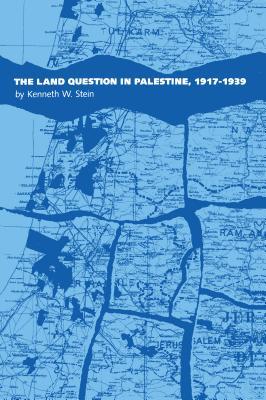
Stein contends that Zionists were able to purchase the core of a national territory in Palestine during this period for three reasons: they had the single-mindedness of purpose, as well as the capital, to buy the land; the Arabs, economically impoverished, politically fragmented, and socially atomized, were willing to sell the land; and the British were largely ineffective in regulating land sales and protecting Arab tenants.
Neither Arab opposition to land sales nor British attempts to regulate them actually limited land acquisition. There were always more Arab offers to sell land than there were Zionist funds. In fact, many sales were made by Arab politicians who publicly opposed Zionism and even led agitation against land acquisition by Jews. Zionists furthered their own ambitions by skillfully using their understanding of the bureaucracy to write laws and to influence key administrative appointments. Further, they knew how to take advantage of social and economic cleavages within Arab society.
Based primarily on archival research, The Land Question in Palestine, 1917-1939 offers an unusually balanced analysis of the social and political history of land sales in Palestine during this critical period. It provides exceptional and essential insight into one of the most troubling conflicts in today's world.
Stein contends that Zionists were able to purchase the core of a national territory in Palestine during this period for three reasons: they had the single-mindedness of purpose, as well as the capital, to buy the land; the Arabs, economically impoverished, politically fragmented, and socially atomized, were willing to sell the land; and the British were largely ineffective in regulating land sales and protecting Arab tenants.
Neither Arab opposition to land sales nor British attempts to regulate them actually limited land acquisition. There were always more Arab offers to sell land than there were Zionist funds. In fact, many sales were made by Arab politicians who publicly opposed Zionism and even led agitation against land acquisition by Jews. Zionists furthered their own ambitions by skillfully using their understanding of the bureaucracy to write laws and to influence key administrative appointments. Further, they knew how to take advantage of social and economic cleavages within Arab society.
Based primarily on archival research, The Land Question in Palestine, 1917-1939 offers an unusually balanced analysis of the social and political history of land sales in Palestine during this critical period. It provides exceptional and essential insight into one of the most troubling conflicts in today's world.
Paperback
$55.00